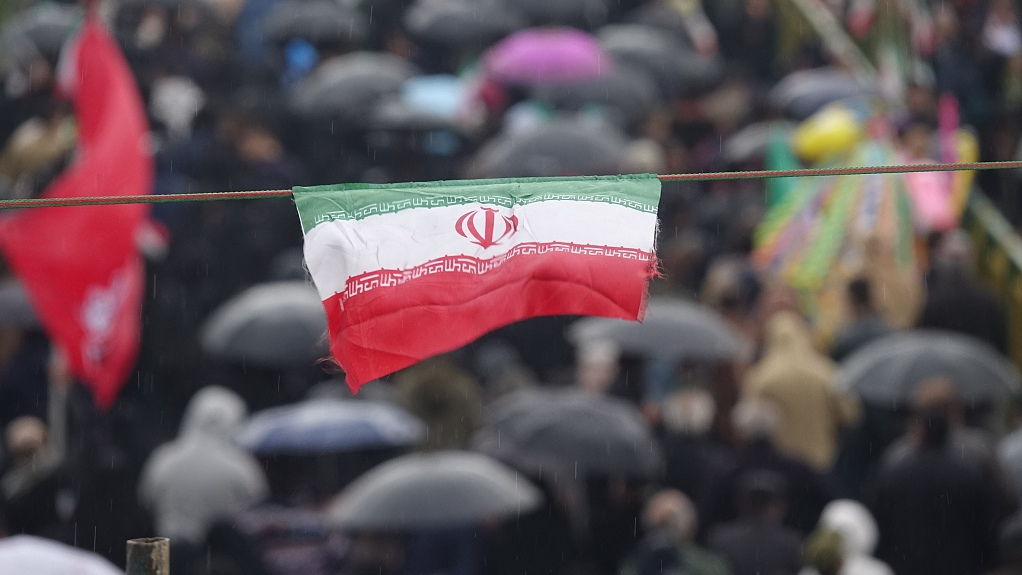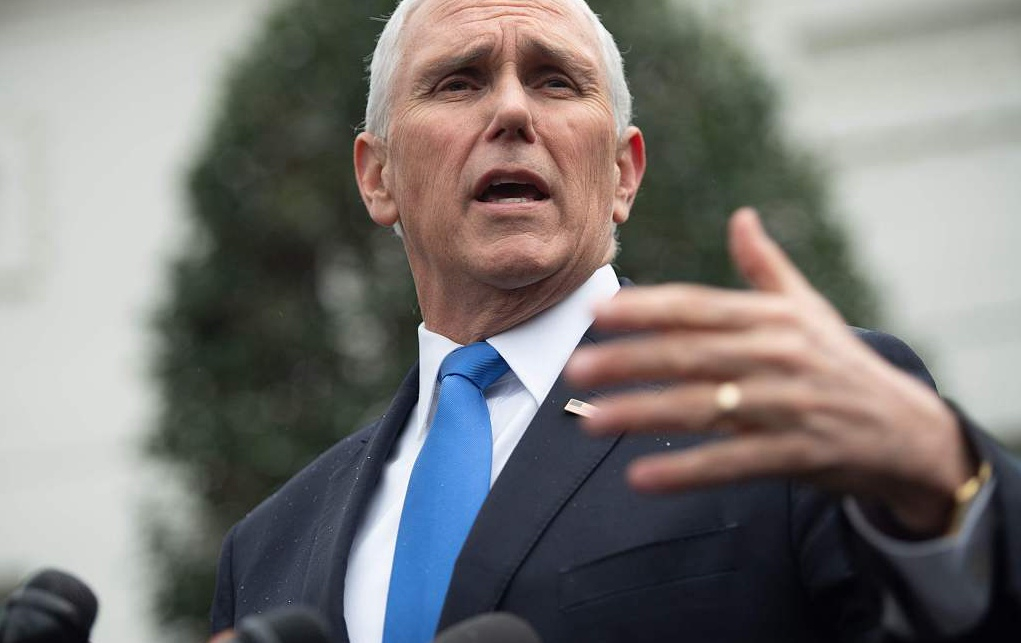
Europe
16:57, 13-Feb-2019
U.S. seeks to increase pressure on Iran at Warsaw meeting
CGTN
01:31

Foreign ministers and senior officials from 60 countries gather in the Polish capital Warsaw on Wednesday where the United States hopes to ratchet up pressure against Iran despite concerns among major European countries about heightened tensions with Tehran.
The absence of foreign ministers from major European powers, Germany and France, highlights festering tensions with the European Union (EU) over U.S. President Donald Trump's decision last year to withdraw from a 2015 nuclear deal with Iran and reimpose sanctions.
EU Policy Chief Federica Mogherini, a key player in the Iran nuclear deal, will also not attend the two-day conference due to scheduling issues, an EU official said, although U.S. Secretary of State Mike Pompeo will travel to Brussels on Friday to meet with her.
Read more:
Pompeo, who will be joined by U.S. Vice President Mike Pence in Warsaw, played down the absence of leading European ministers at the event during a brief stop in the Slovak capital Bratislava on Tuesday, before he headed to Warsaw.
"Some countries are having their foreign ministers come. Other countries are not. That's their choice," he told a news conference.
"We think we will make real progress. We think there'll be dozens of nations there seriously working towards a better, more stable Middle East, and I'm hoping by the time we leave on Thursday we'll have achieved that."
While countries such as France, Germany, and Britain have opened a new channel for non-dollar trade with Iran to avert U.S. sanctions and keep the nuclear deal afloat, they have criticized Tehran's ballistic missile program.
"There will be discussions about Iran's influence in the Middle East, what we can do to help get Iran on a more helpful footing that it has been, to collectively push back on some of its malign behavior in the region," a senior U.S. official said of the Warsaw agenda.
New U.S. sanctions, mainly targeted at cutting off revenue from Iran's oil sector, have largely succeeded in persuading European companies to abandon business with Iran.

U.S. Vice President Mike Pence speaks to the media following a meeting between Democratic leaders and U.S. President Donald Trump at the White House in Washington, DC, January 9, 2019. /VCG Photo
U.S. Vice President Mike Pence speaks to the media following a meeting between Democratic leaders and U.S. President Donald Trump at the White House in Washington, DC, January 9, 2019. /VCG Photo
Iran has threatened to pull out of the deal unless the European powers enable it to receive economic benefits. The Europeans have promised to help companies do business with Iran as long as it abides by the deal.
'Bashing Iran'
During his trip to the Middle East this January, Pompeo said the meeting "includes an important element of making sure that Iran is not a destabilizing influence."
Iranian Foreign Minister Mohammad Javad Zarif dismissed the planned meeting as an "anti-Iranian circus event" and a "desperate" show that will only disgrace the participants.
The objective of the Trump administration was to rally international support at the conference to isolate Iran diplomatically and economically, said Ahmad Majidyar, a senior fellow and director of Iran Observed Project at the Middle East Institute, a Washington-based think tank.
In an opinion piece, Roula Khalaf, deputy editor of Financial Times and an expert on Middle East issues, wrote that this meeting intends to create an anti-Iran coalition which consolidates the impression that the world has lined up behind Trump's hardline approach to Iran.
Some speculated that the conference is targeted at overshadowing Iran's 40th anniversary of the victory of the Islamic Revolution in the same week, said Ellie Geranmayeh, deputy director of the Middle East and North Africa Program at the European Council on Foreign Relations (ECFR).
"It is not the most outrageous foreign policy idea peddled by the Trump administration. But, in the raft of schemes rolling out from Washington, it is probably the most pointless," Khalaf said.
Why Poland?
Given Warsaw's limited political and economic stakes in Iran and the Middle East, analysts observed that the motives behind the Polish government to hold this event are not related to Iran.
Robert Czulda, an assistant professor at the University of Lodz in Poland, argued that Warsaw's decision to host the summit "might be unprofitable for Poland in the longer term, for now, it is purely political and driven by pragmatism."
Read more:
"Although Warsaw wants good relations with Tehran, economic cooperation with Iran is minimal while close ties with the United States are crucial" and its main rationale is to bear the cost of strained relations with Iran to please the White House, he said.
"Hosting a summit on the Middle East, Polish decision-makers believe, would be not only a chance to make the American administration happy... but also another step in moving Poland to the next level in international affairs."
Echoing Czulda, Piotr Buras, director of the Warsaw office of the ECFR, said that the Polish government has "encouraged this reading of the situation by emphasizing the symbolic role of the event for Poland's rising position in the world and strategic cooperation with Washington."
"What worries me is that the Polish government is putting its eggs almost completely in Trump's basket... All of this is at the expense of relations with EU partners, and even at the expense of NATO (North Atlantic Treaty Organization) unity," he added.
(With inputs from agencies)

SITEMAP
Copyright © 2018 CGTN. Beijing ICP prepared NO.16065310-3
Copyright © 2018 CGTN. Beijing ICP prepared NO.16065310-3